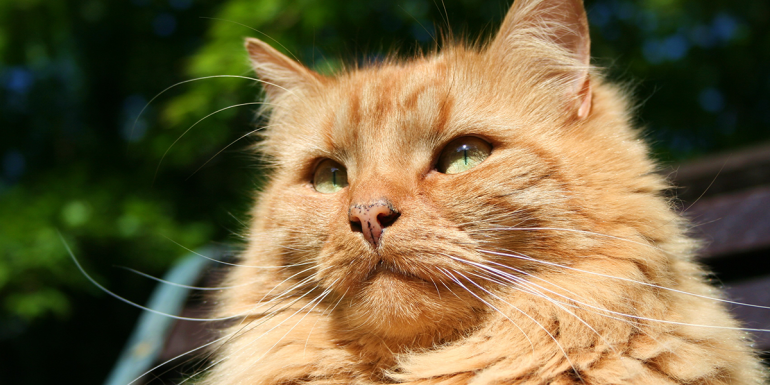Bordetella in Cats: Causes, Symptoms, Treatment, and Prevention

Bordetella bronchiseptica, a bacterium commonly associated with respiratory infections in cats, is a significant concern for cat owners and caregivers. Understanding the causes, symptoms, treatment options, and prevention methods is essential for maintaining feline health and well-being. This article provides comprehensive insights into Bordetella in cats to help cat lovers make informed decisions about their pets' care.
Bordetella in cats
Although bordetella is not very common in typical domestic cats, it can be a serious issue in situations where many cats live in close quarters, such as in catteries and breeding facilities. It spreads from cat to cat quite quickly. Although it seldom results in death, the symptoms could be quite troublesome to treat. If your cat requires protection, make sure she receives monthly vaccines to provide comprehensive protection. Prevention is always preferable to treatment.

What is Bordetella?
The bacteria that causes whooping cough in humans, Bordetella pertussis, is closely related to Bordetella bronchiseptica (Bb). One of the microorganisms that causes dog kennel cough and the "flu" in cats is called bordetella. When infection happens concurrently with infection from either of the two cat flu viruses—feline herpesvirus or feline calicivirus—it typically results in the most complications. If one of the viruses takes hold, your cat's immune system can become so preoccupied with eliminating it that other microorganisms, especially bacteria, decide to join the assault. While herpesvirus and calicivirus are still the most prevalent respiratory viruses that cause cat flu, new studies have also demonstrated that Bordetella bronchiseptica (Bb) can cause flu on its own.
How is the disease spread?
Bordetella bronchiseptica is highly contagious and spreads through direct contact with infected cats or contaminated surfaces. Cats housed in crowded or stressful environments, such as shelters or catteries, are at higher risk of contracting the infection. Stress, poor ventilation, and inadequate hygiene can also contribute to the spread of the bacterium.
Similar to human "flu," cat "flu" is transmitted by sneezing, direct contact, or sharing food bowls, as well as by moisture droplets carrying the virus. Cats with the virus can transmit it through their saliva and nasal secretions. (snot). Up to three weeks can pass during the incubation phase, during which a cat is infected and harbors the disease before symptoms appear.
In the UK, about 1 in 10 cats has bordetella. This implies that there's a good chance your cat could get the illness from a seemingly healthy cat. Additionally, handling cats can potentially transfer the disease from one to another.
How do I know if my cat has Bordetella?
Cat 'flu' symptoms are highly distinguishable and unlikely to be confused with other conditions. In actuality, cat "flu" frequently resembles human "flu," beginning with a high fever that may cause your cat to feel miserable and refuse food, then progressing to sneezing, coughing, and painful eyes.
In most circumstances, your cat should return to her normal self in two to three weeks after the signs start to improve after around seven days. Pneumonia can result from bordetella, so if your cat is sick with the flu and you're not satisfied with her recovery, ask your veterinarian to examine her once more. Bordetella can kill young kittens before any symptoms appear.
Symptoms
Cats infected with Bordetella may exhibit a range of symptoms, including:
-
Sneezing and Nasal Discharge: Cats with Bordetella often develop sneezing fits and may have clear or mucous-like nasal discharge.
-
Coughing: Persistent coughing, sometimes resembling a "honking" sound, is a common symptom.
-
Watery Eyes: Cats may experience excessive tearing and eye discharge.
-
Lethargy: Infected cats tend to be less active, sleep more, and show reduced interest in their surroundings.
-
Loss of Appetite: Bordetella infection can lead to a decreased appetite and, subsequently, weight loss.
In severe cases, Bordetella can progress to pneumonia, especially in kittens or cats with weakened immune systems.
Can I catch Bordetella from my cat?
There have been reports of dogs and cats in the same household suffering from infection with Bordetella at the same time. However, there is no evidence that the infection can spread from cats to man.
Diagnosis
A veterinarian can diagnose Bordetella based on the cat's symptoms, physical examination, and sometimes additional tests such as nasal or throat swabs.
Can Bordetella infection be treated?
Treatment usually involves supportive care, including:
-
Isolation: Infected cats should be isolated to prevent the spread of the infection to other feline companions.
-
Humidified Environment: Providing a humidified environment helps ease respiratory discomfort.
-
Hydration and Nutrition: Ensuring the cat stays well-hydrated and maintaining proper nutrition supports the immune system during recovery.
-
Antibiotics: In severe cases or cases with secondary bacterial infections, antibiotics may be prescribed to address the bacterial infection.
The main cause of "flu" in cats, viral infections, has no known cure. It will be up to your cat to fight off the illness on her own, which most otherwise healthy cats will manage to do in a matter of weeks. However, cats experience extreme misery when they have the "flu," much like people, and extensive nursing care is required to help them recover. Your veterinarian should examine your cat on a regular basis. If they suspect bacterial illnesses, such as Bordetella, they will prescribe medication.
Ensure that your cat has a warm, cozy place to sleep as well as an ample supply of milk or water to drink. To keep your cat's strength up, even if she might not want to eat for the first few days, you should try to entice her to eat by providing delicious warm food. To help your cat breathe easier, place her in a warm, steamy place (such as the bathroom with a hot shower running) if she is extremely congested.
Your veterinarian should always be contacted frequently, and you should notify him right away if your cat seems to be becoming ill. Make extra effort to keep your other cats away from the ill cat if you have any, and always wash your hands after handling her. However, your other cats will probably have already been exposed to the disease and may show signs because she was contagious before the symptoms appeared.
Will my cat get better?
The majority of healthy young cats will bounce back from "flu" within a few weeks, yet for a small percentage of them, even after they overcome the first sickness, the issue persists. These animals can be left with chronic issues like runny noses. These cats occasionally require nearly constant medication to manage their problems. Young kittens, elderly cats, and cats with other illnesses, such as FeLV or FIV, may be considerably more susceptible to the disease and may not survive even with intensive treatment that requires hospitalization.
How can I stop my cat getting Bordetella?
Prevention
-
Vaccination: Regular vaccinations, including Bordetella, are crucial for preventing severe illness associated with the infection. Consult a veterinarian to ensure your cat's vaccinations are up-to-date.
-
Hygiene: Maintaining cleanliness in your cat's living environment, including litter boxes, food and water bowls, and bedding, helps minimize the risk of infection.
-
Stress Reduction: Minimizing stress, especially during significant changes in the cat's routine, can bolster the immune system and reduce susceptibility to infections.
The most vulnerable people should receive special protection when it comes to Bb safeguards, and few people are more vulnerable than kittens in breeding colonies and rescue shelters.
There is a vaccine that guards against Bordetella. Within 72 hours, the vaccine, which is given as nasal drops, starts to work. Pet cats do not usually receive this vaccination, so you should talk to your veterinarian about whether your cat needs this extra protection. Before boarding a cat, several catteries mandate that the animal have a Bordetella vaccination.
Dogs that have bordetella may also get kennel cough. Keep your cat away from your dog if they are coughing.
Conclusion
Bordetella in cats is a contagious and potentially serious respiratory infection that requires prompt attention and care. Cat owners should be vigilant about their pets' health, seek veterinary advice at the first sign of symptoms, and ensure that vaccinations are kept current. By understanding the causes, recognizing the symptoms, and implementing preventive measures, cat owners can contribute significantly to their feline companions' well-being and happiness.





